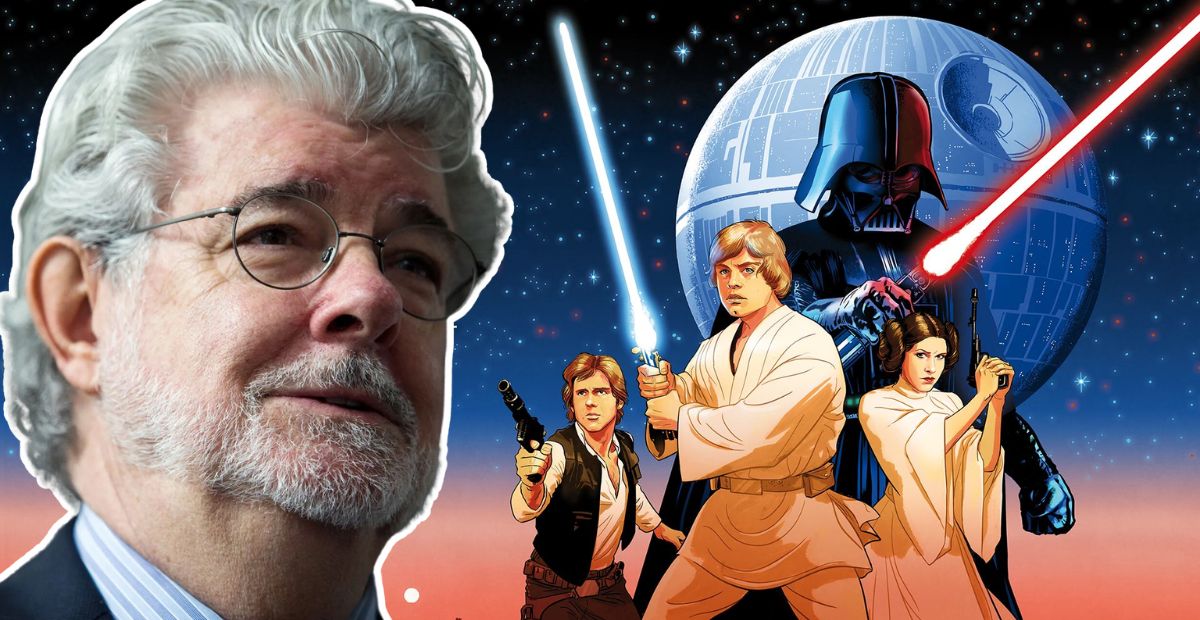In a 1977 interview, George Lucas clarified to the fans that his “Star Wars” is more of a fantasy than traditional science fiction.
Lucas described “Star Wars” as a “space opera,” blending elements of classic fairy tales, mythology, and swashbuckling adventures with futuristic settings and technology.
This perspective was central to Lucas’s vision, shaping the unique narrative and aesthetic of the “Star Wars” saga.
Here is Lucas’s full statement:
“I was afraid that science-fiction buffs and everybody would say things like, “You know there’s no sound in outer space.” I just wanted to forget science. That would take care of itself. Stanley Kubrick made the ultimate science-fiction movie and it is going to be very hard for somebody to come along and make a better movie, as far as I’m concerned. I didn’t want to make a 2001, I wanted to make a space fantasy that was more in the genre of Edgar Rice Burroughs; that whole other end of space fantasy that was there before science took it over in the Fifties. Once the atomic bomb came, everybody got into monsters and science and what would happen with this and what would happen with that. I think speculative fiction is very valid but they forgot the fairy tales and the dragons and Tolkien and all the real heroes.”
From Lucas’s statement, we can see that his vision for the Star Wars saga was deeply rooted in the traditions of fantasy and mythological storytelling rather than the conventions of science fiction.
Lucas’s Vision for Star Wars
From the original Star Wars trilogy, it’s clear what Lucas had in mind. He wanted to create a story that went beyond specific genres and resonated with everyone.
By using themes and archetypes found in fairy tales and myths, like the hero’s journey, he crafted a narrative that could appeal to people of all ages and cultures.
Think about the Force. It’s a mystical energy field that adds a fantasy element to Star Wars. Unlike scientific phenomena, the Force works more like magic, granting abilities such as telekinesis, mind control, and precognition.
This magical aspect emphasizes the mystical over the scientific, making the story feel more like fantasy
Take Luke Skywalker’s journey in “A New Hope.”
He starts as a farm boy on Tatooine, gets a call to adventure from Obi-Wan Kenobi, faces numerous trials, and ultimately destroys the Death Star, becoming a hero.
This classic narrative arc is a cornerstone of mythological storytelling.
Then there’s Obi-Wan Kenobi, the mentor who guides Luke and sacrifices himself. He’s like Merlin from Arthurian legend or Gandalf from “The Lord of the Rings.”
These mentor figures are essential for guiding the hero and imparting crucial wisdom, highlighting the mythological roots of the story.
Another element showing Lucas’s vision for Star Wars as fantasy movies is the lightsaber, the iconic weapon of the Jedi and Sith.
While they appear as advanced technology, their use and significance are more akin to enchanted swords found in fantasy tales.
The lightsaber’s role goes beyond being just a weapon; it is a symbol of the Jedi’s mystical connection to the Force, much like a magical artifact in a fairy tale.
In typical science fiction, advanced technology is explained through scientific principles, but lightsabers in Star Wars are more about the lore and mystique surrounding the Jedi and Sith.
This was Lucas’s vision when he created Star Wars. Even today, George Lucas emphasizes that his Star Wars saga is more fantasy than science fiction, contrary to what many people think.
Check out this short conversation between George Lucas and James Cameron in “The Story of Science Fiction.” The video is below:

